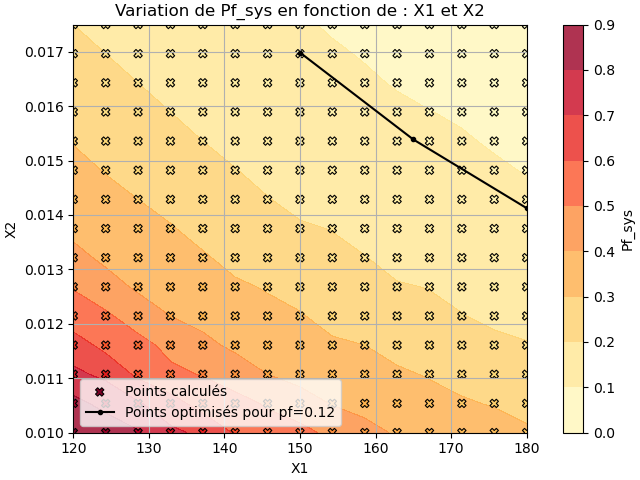Context
With the aim of assessing the resistance of reactor vessels in the French nuclear fleet to thermomechanical loading as a function of operating time, the Institut de Radioprotection et de Sûreté Nucléaire (IRSN) is developing its own analysis and verification tools, enabling it, among other things, to position itself in relation to operators’ results. To this end, IRSN has developed a deterministic calculation chain to assess the strength of the vessel in the presence of a given defect and under a given thermomechanical load.
IRSN approached Phimeca to develop mechano-probabilistic coupling scripts (Python language – OpenTURNS libraries) for calculating the probability of failure of a vessel subjected to given thermomechanical loads in the presence of random and epistemic material and geometric uncertainties.
Results
Phimeca has built several Python scripts that provide the following functions:
- Mechanical-probabilistic coupling between Python and the Cast3m code.
- Definition of a probabilistic model of the input parameters of the physical model with several distribution configurations: Deterministic, Uniform, Bernoulli, Normal, Log-Normal or defined by a probability table supplied by the user.
- Computation of system failure probability (Pf_sys) using Monte-Carlo and Subset methods.
- Computation of the fragility of Pf_sys as a function of one or more indicators.
- Perform an inverse calculation, looking for the values of several indicators that correspond to a given failure probability threshold.
- Graphical representation of the results of the fragility and inverse calculations.
In summary, these Python scripts are a powerful tool for analysing the reliability of complex systems, taking into account the uncertainty of the input parameters, and for optimising their design to meet specific reliability criteria.

Figure 1: Fictitious and illustrative result of a type of expected result for a sinusoidal model
